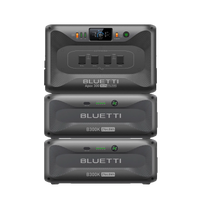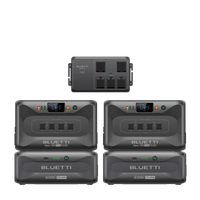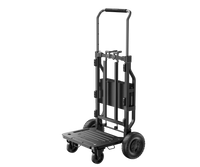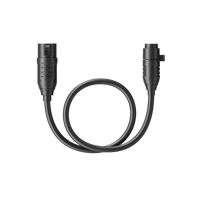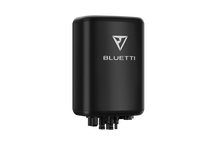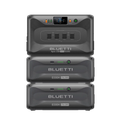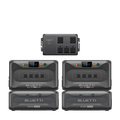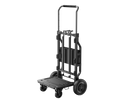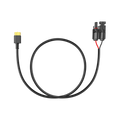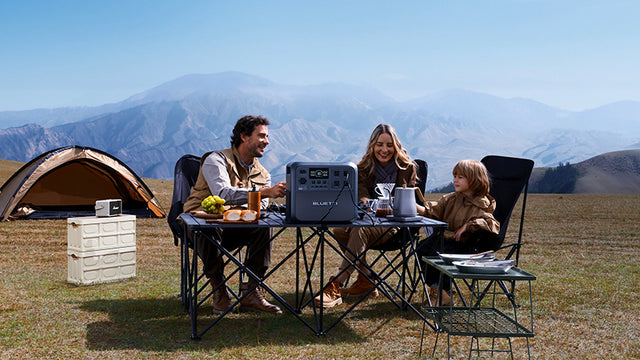Your cart is empty
Shop our productsWinter can be brutal, but it might be the time when you'll find your opportunity to use solar power. If utilized properly, solar power can provide dramatic reductions in energy costs during the winter months - it's important to think about the best way to utilize solar power during winter!

Energy storage is important
One of the main issues that occur during the winter months is the depletion of solar energy. Because of this lack of energy, energy storage can complement solar power with electricity production. The myth that solar panels don't work in cold weather is a widespread belief that solar panels only need light to work effectively and not heat.
You'll need a solar battery system if you intend to install solar panels. You may utilize the battery to store power at night or on days when the solar cells can't generate enough electricity.
How to utilize solar power in the winter months
The winter months are the ideal time for solar power. Its sunny days are considered optimal for solar-panel output, meaning more potential energy is captured at any given time. Extremely cold temperatures increase the collection capacity of solar panels by harnessing heat radiating from the earth.
Why is Solar Panel an ideal device to use in the winter months
A solar panel is an ideal device to use in the winter months because we can now use this device as a supplement to the existing power supply. The Solar Panel helps us save on our local POWER BILL. All you have to do is place the panels in the sunlight above the rooftops of your office/residential office. Solar panels are very special because as long as you do not disconnect the solar panel, the total energy produced will be saved and saved for later use.

Do Panels Perform Better in High or Low Temperature?
In cold weather, solar panels have been proven to work better because of the lower temperature of the solar panels. In the mornings when it is cold and in the evenings when it's hot (high temperatures), the solar panels work the best.
Recommended Solar Panel Products
Solar panels are usually used when there's plenty of light rather than heat. Low temperatures help increase performance for certain types of solar panels. A key factor to look at here is reflectivity. The more reflectivity your solar panel has, the more benefit you'll see. Examples of good quality panels are monocrystalline silicon, photovoltaic grade, dual-layer silicon-glass, crystalline silicon.
We have selected a battery power station that can meet your needs in most cases.

BLUETTI AC200MAX POWER STATION+3*PV200 PANEL COMBO
BLUETTI AC200MAX POWER STATION+3*PV200 PANEL COMBO is also a fantastic solar panel model.
It is composed of a battery power station and three solar panels. This means that during the day you can store the energy of the solar panel in AC200MAX power station, and then use the stored energy to power lights, mobile phones, microwave ovens, etc. at night.

For more info, you can find in this article.
Pros of solar panels
There are a few good reasons to use solar power in winter months as a primary source of energy. The pros for this power include low cost, availability.
1. Save your power Bill in Winter
With today's amount and quality of solar panels and power systems, we can't even put a number on their output. Solar panels' solar power storage capacity is enough to save your power bill in winter with reduced sunlight.
2. An emergency power during power outages in winter
The Solar Panel serves as an emergency power source during a power outage, ensuring you have an uninterrupted power supply during winter, especially if you don't want to pump, store and store gas manually.
3. Green Energy
Solar panels generate virtually no negative environmental effects, and the amount of power available is truly staggering.
Five Myths about Solar Power in the Winter Months

Solar power is extremely helpful in the winter, with its charge staying strong in all daylight hours. Solar is used in the home with increased charge rates when consumers use solar for heating their homes. Many electric cars with rooftop solar panels are designed to harness the winter sun; then, consumers receive an electric bill that is much more manageable than with heat. Below are the following five myths of solar power in the winter.
1. Solar panels don't work in the winter:
It's wrong to say that solar panels don't work in the winter. Their output is lower than during the height of summer—days are shorter, and snow can temporarily reduce or shut down the output. That said, solar panels are more efficient in colder temperatures! If you have a solar electric system, at least 80 percent of the energy their panels produce every day goes into your energy meter via wires that run into your home.
2. Solar panels don't make sense in colder climates:
The misconception that solar panel doesn't make sense in a colder climate is very wrong. This is because there are excellent solar panels designed for the cold region. Russian and Germany are examples of developed countries that and users of solar installations. It's critical to keep in mind that solar panels use the power of sunlight, not heat, to create energy. Cooler temperatures enhance the efficiency of current transmission through electrical wire, improving the panel's output as long as there is enough sunshine.
3. Snow will ruin solar panels:
Another misconception is that solar panels get ruined when snow hits them. This is not true. As long as there are no severe impacts under snow, they will not be duped. As a result, your solar panels will stay intact so that you can take advantage of Sun Sunrise throughout the year.
4. Solar Power is expensive:
According to the Solar Energy Industries Association, the cost of owning a solar panel system, including installation and price per kilowatt, has decreased by almost 70% since 2009. During the last few years, solar has also become competitive with conventional power sources, something that was not conceivable during the first six or seven decades of modern solar technology's existence. In addition, financing a solar panel system is now more accessible than ever before.
5. Solar power can’t be stored:
It's wrong to say solar power can't be stored. Solar-battery systems may store energy for use at night or on overcast days, respectively. The efficiency, usability, and storage capacity of solar batteries are all growing quickly. Soon, larger solar battery systems may allow the ordinary home to power itself for a whole day without recharging. Solar batteries, which are now on the market, can supply enough electricity to a house to last the whole night without recharging.
FAQ:
1. Do solar panels work in winter?
Colder temperatures can aid in creating solar cells, so that's something to keep in mind (PV Performance). Solar panels only require sunshine to generate power, so even in the dead of winter, your solar system will continue to collect energy while the sun is shining — even if it is shaded by trees or snow.
2. Do you get less solar power in winter months?
The broader answer is that solar panels function in winter weather, but their output is reduced for apparent reasons. Solar panels perform better in cooler temperatures! Their output is lower than during the peak of summer—shorter days and snow can temporarily reduce or shut down the output.
3. Do solar panels work during rain?
Solar home systems are capable of operating on bright, cloudy, or even rainy days. This is because Solar panels are a critical component of a solar home system. Even under the toughest weather circumstances, visible light will always exist and will transcend clouds and rain.
Shop products from this article
Be the First to Know
You May Also Like

What Does a 30% Federal Solar Tax Credit Mean and How to Apply?
Governments around the world are offering programs that encourage homeowners to switch to solar energy. Among the most notable programs is the 30% Federal Solar Tax Credit. It reduces your...

Deadly Flooding Devastates U.S. South and Midwest — What You Need to Know















